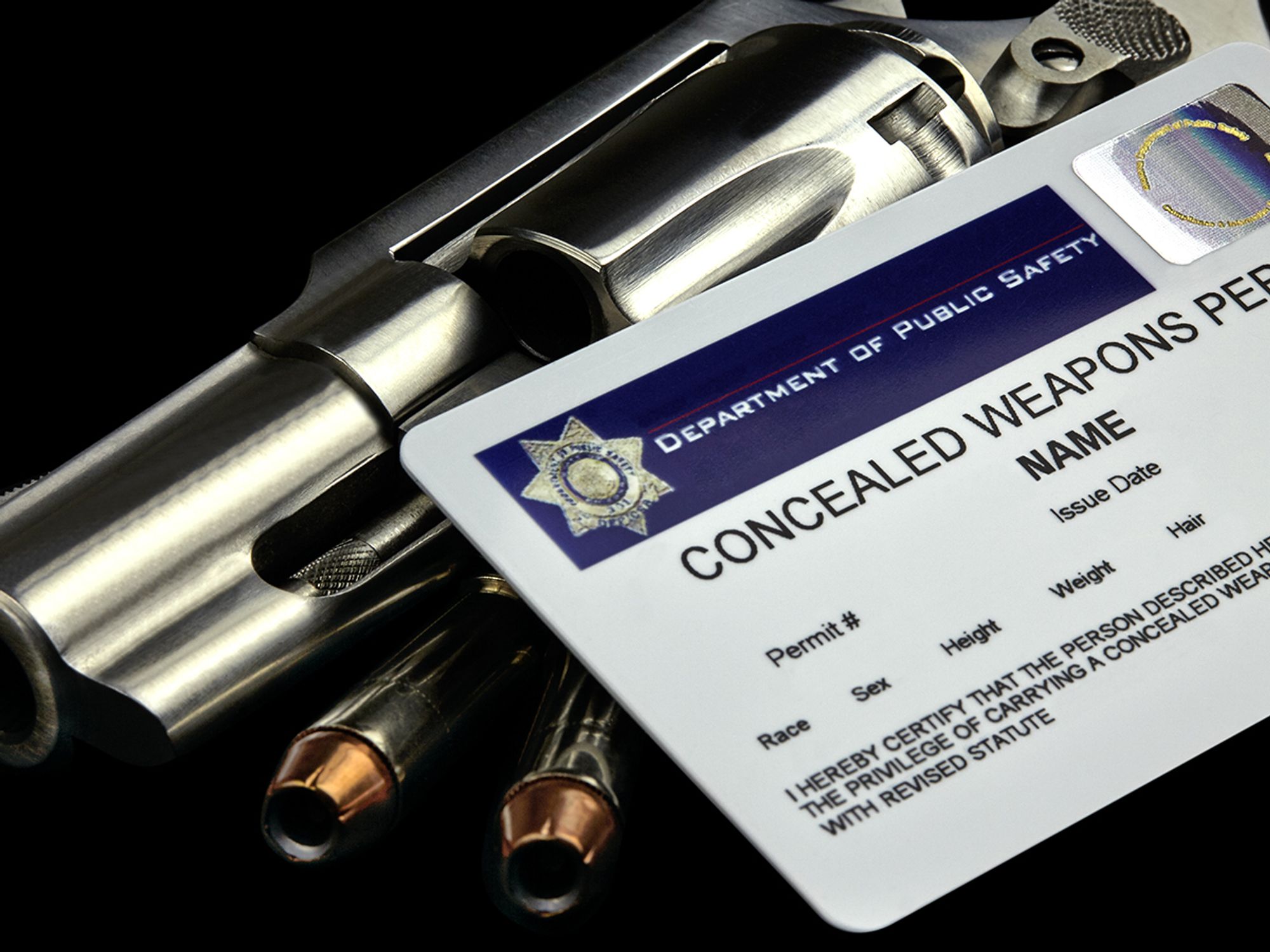Asking about permits

- Some state laws prohibit inquiring about concealed weapon carry permits, either implicitly or explicitly.
- Employers should avoid asking questions that are not related to job duties, like asking about permits.
If the employer does choose to ask about carry permits, there should be a legitimate business reason for doing so.
Is it OK to ask employees about permits?
Employers should review state laws before asking questions about whether a potential employee possesses a carry permit. Some laws may prohibit the inquiry, whether explicitly or implicitly. For example, a law may not specifically prohibit such questions, but might prohibit an employer from conditioning employment on the answer. This may raise questions about why the employer asked in the first place.
As a further example, employers usually avoid asking about an employee’s age because of concerns about age discrimination claims, even though the Age Discrimination in Employment Act does not prohibit such questions. However, asking for the information may raise questions about how the employer will use the information.
Attempting to assert a business reason for asking about concealed carry permits might result in additional inquiries. For example, Alabama law allows employees to store a firearm in a personal vehicle during hunting season if the employee has a hunting license. An employer who claims a business need to know about firearms in the parking lot might therefore need to make annual inquiries on whether employees purchased a hunting license.
How will the employee react?
Another consideration is whether employees would answer questions about carry permits. They might feel that the information is none of the company’s business and refuse to answer, or provide a false answer. If state law prohibits adverse action based on possession of a permit, any disciplinary action taken for that refusal or dishonesty might be seen as improper. This assumes the employer could uncover evidence of dishonesty, since lists of permit holders are not normally available to the public.
While some employers may be uncomfortable with these laws, asking about information that is speculative or not related to the job duties should generally be avoided.
Legitimate business reasons for inquiries
If an employer does feel the need to ask questions about permits, there should be a legitimate business reason for doing so. For example, most state laws which allow firearms in personal vehicles will require that the weapon remain out of sight, and that the weapon should not be removed from the vehicle. If another employee reports seeing a weapon (or reports that someone was handling a weapon in the parking lot), the employer’s investigation can certainly include questions about whether the individual has a permit.
Similarly, the possibility that an aggressive or potentially violent employee may have a weapon on the premises can be the basis for a legitimate inquiry. If a particular employee gets angry and begins shouting or making threats toward others, the company may choose to ask whether that employee has a permit for a concealed weapon. If adverse employment action is taken, the employer should still be able to show that the underlying conduct (not merely the possession of a permit) was the foundation for that decision.
